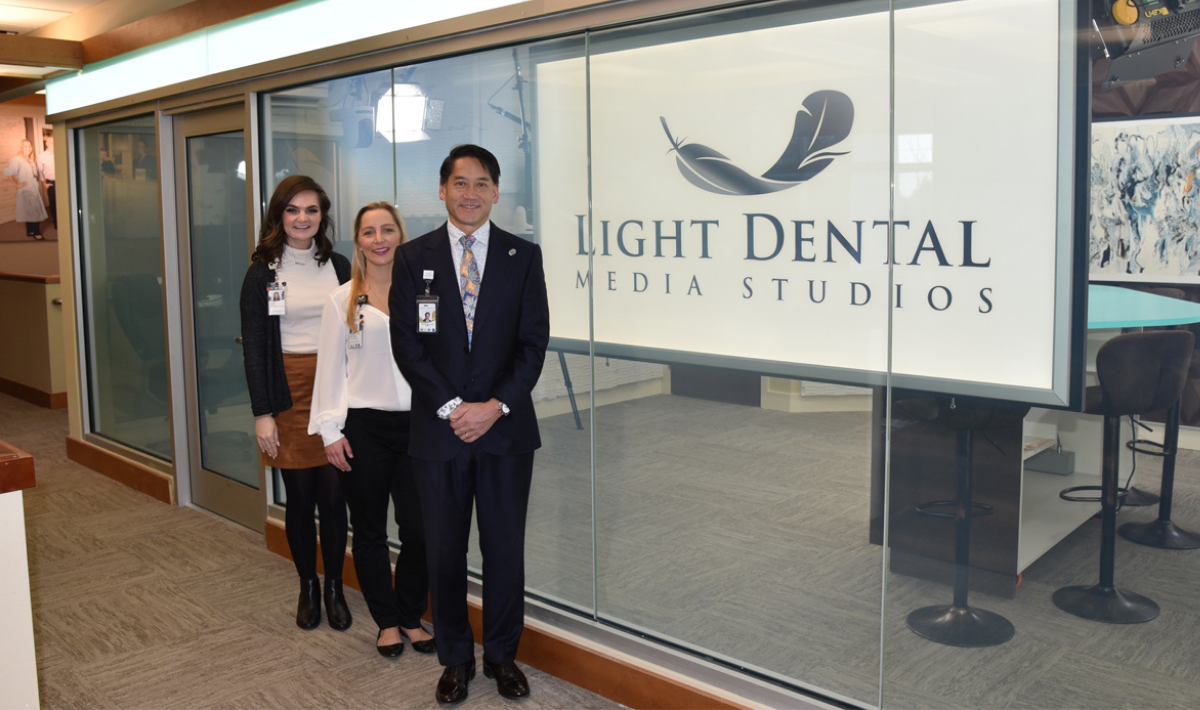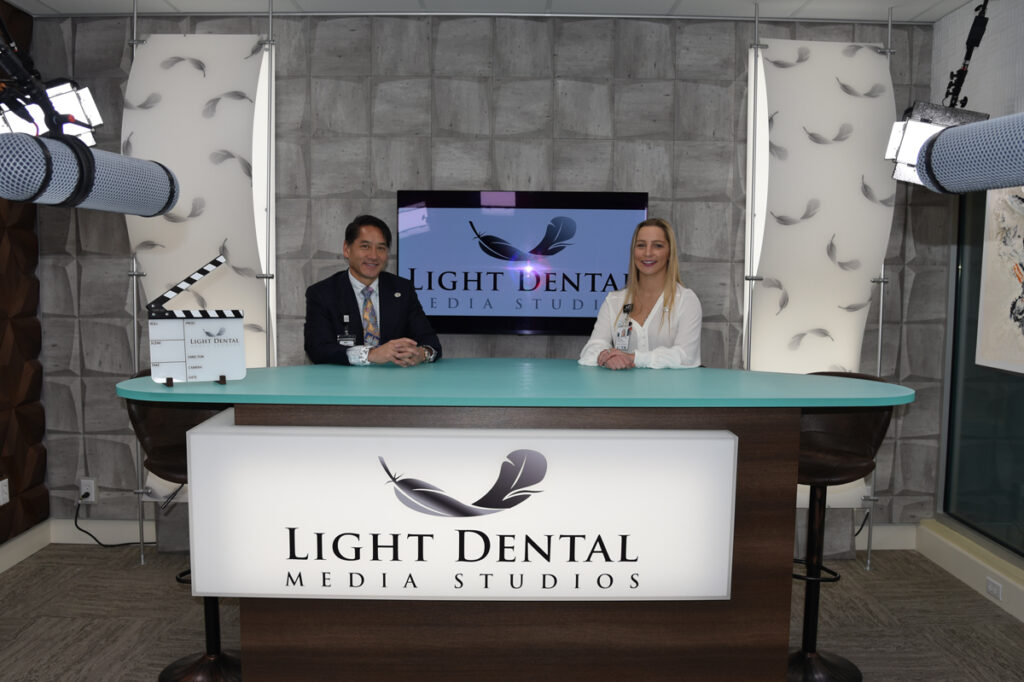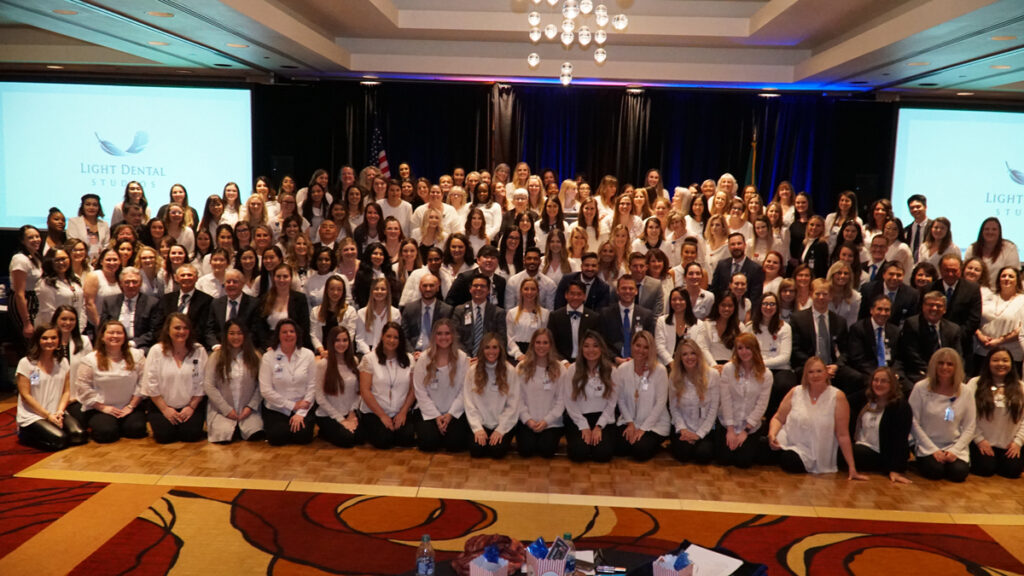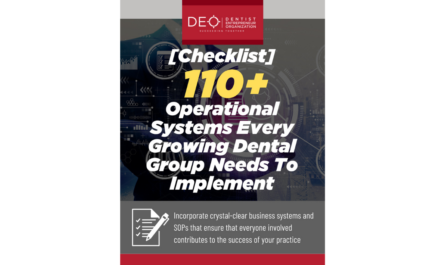How our “Hire for Life” process laid the foundation for transformational growth
By Dr. Steve Broughton
In his book “Zero to One: Notes on Startups, or How to Build the Future”, billionaire entrepreneur and venture capitalist Peter Thiel asks, “What important truth do very few people agree with you on?” It’s featured in a section on the single best interview question you can ask someone.
He proclaims that even though it sounds easy because it’s straightforward, it’s very hard to answer. He explains, “It’s intellectually difficult because the knowledge that everyone is taught in school is by definition agreed upon. And it’s psychologically difficult because anyone trying to answer must say something she knows to be unpopular. Brilliant thinking is rare, but courage is in even shorter supply than genius.”
Growing loyalty
This strikes at the heart of entrepreneurship. When I started Light Dental Studios in Washington state in 1997, we had six employees in an old mobile home converted to a dental office. Today, we have over 250 employees and 48 associates/specialists across 17 locations in the southern part of the state. Half of our original team still work for the company. This kind of loyalty grew through our “Hire for Life” foundational process.
We treat our relationships with associates and staff almost like a marriage and aim for people who are willing to emotionally join and stay. In fact, we give strong candidates our doctors’ email addresses and phone numbers. They can call any doctor they want to and discuss that doctor’s experience at Light Dental Studios, and we do not tell them who to call. When we mention our “Hire for Life” process and everything that goes with it, we immediately lose half of our prospective candidates.
We had some challenging days when we were growing as a company and had less than 10 associates. I understand what many dentists with smaller staffs and a limited number of associates are going through. It’s a tough phase. You’re the pied piper and you need people to believe in you and your company.
But our approach works partially due to our access to local dental schools. We participate in lunch and learns, and I give my time sharing with students business principles and how we grew our organization. It’s much harder if your practice doesn’t have a large candidate pool to draw from, as we interviewed 60 candidates for five positions recently.
The onboarding process
Nearly 90% of our hires are recent dental school graduates and our typical associate graduates near the top of his or her class. The onboarding process is in-depth with a color-coded green-yellow-red phased system.
Our green phase teaches the software, credentialing, and basic logistics of the office layout and the organizational structure. Yellow teaches how the business is run from insurance to billing to helping staff answer the phones when needed. And red is a never-ending phase that focuses on two primary leadership positions – treatment planning and case acceptance, and conflict management.
Treatment planning and case acceptance separate the great dentists from the good dentists. How do you get patients to accept treatment if they haven’t been to a dentist office in a long time? That skill takes a long time to develop.
And conflict management is crucial because all doctors are leaders of their team, and one of the most difficult leadership aims is creating purpose and meaningful work for their team. But how is that done when a staff member, patient or another doctor is upset?
In our foundations training, our associates memorize our 10 core values and learn the background of our company. We also head management and leadership training throughout our company without outside consultants. This stems from our belief that “living by example” is a stronger argument than people outside the organization giving advice about how our organization should operate.
Our core values are also used in our interview process. Interviewees are assessed on how much they align with our core values. They’re asked about their background and childhood, a conflict that took time to resolve and how they resolved it. That tells us so much about the candidates since we all learn through conflict and less through success. It often helps us uncover the layers of protection we build to hide our vulnerable areas. It is quite common (likely close to half the interviews) to have the doctor cry or have a strong emotional response during the course of the interview. Our average interviews last 4 hours.
We don’t initially offer equity in our company, but we teach our dentists how to run all aspects of a dental practice. Our dentists learn to lead and as they advance, we offer them tracks to higher leadership roles which will ultimately have the potential for ownership. We haven’t found a way to predict if someone will develop into a good leader – and we feel promising ownership leads to a handful of dentists who aren’t ready to own and lead. Surprisingly, we have very low doctor turnover (less than 10%). We feel this is due to helping our doctors feel loved and vital to the organization while giving them a voice in the management of their teams.
Culture takes time
Culture has an intimate relationship with time. Building belief takes time. It’s easy to rally people for one hour, but how do you rally them for 3, 5, 10, years when that belief is tested? People get upset, bored, disengaged, and we feel that is normal human behavior. Countering that by helping them learn to solve their problems and work better together takes time and concentrated effort in our opinion. But, over time, they learn to work and trust one another creating extraordinary teams. Even then, we are constantly tested and have to engage uncomfortable conversations head on to sustain our culture. It’s never-ending and requires relentless attention.
We make sure our staff interacts with each other throughout the week highlighting core values in team emails, employee spotlights and trivia contests.
In our Tuesday team emails, each employee writes about a core value they witnessed being utilized by another staff member. Our Friday night spotlights tell the stories of our employees through their colleagues as one employee films a colleague on Fridays and shares it across the company. And doctors quiz other employees in our Sunday trivia about books we read together in our company book club.
These weekly connections create a feeling of belonging within the staff, which helps lead to the longevity and loyalty we seek.
Dr. Steve Broughton has been the CEO and founder of Light Dental Studios since 1997. He holds a bachelor’s degree from Whitworth College and graduated from the University of Washington’s School of Dentistry. Light Dental Studios has over 250 employees and 48 associates across 17 locations in Washington state.
Dr. Broughton has received several awards including the American Dental Association’s Golden Apple Award. He has served on numerous councils and boards in dentistry and is a member of the ADA, the Washington State Dental Association, the Pierce County Dental Society and the American College of Dentists.








